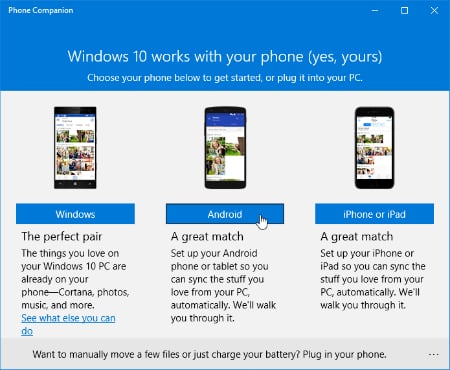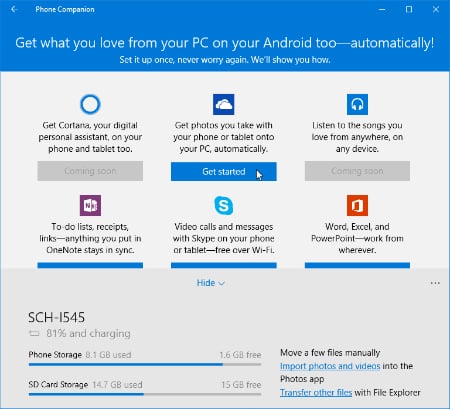USING THE WINDOWS 10 PHONE COMPANION with mobile to pc
- Click the Start button, choose All Apps, and choose Phone Companion.The program appears, shown in the figure below.

What is SAP Landscape?
-
- Click on your type of phone or device, and then connect your device to your computer.Connect the cable from your computer’s USB port to your phone or iPad’s connector. The Phone Companion lists your phone’s available storage space and available apps, shown in the figure below.

Visit for More Forever Living Products - Forever Living Kuwait at https://foreverlivingkuwait.blogspot.com/
- Choose which apps to install, and whether to transfer photos or files.The Phone Companion leaves you with three options.
- Install Apps: The Phone Companion lists the Windows apps available your phone. Install the OneDrive app, for example, to give your phone access to your OneDrive files. You can also install Cortana, Music, OneNote, Skype, Word, Excel, PowerPoint, and Outlook — the same apps that work on your PC. By installing the apps, you can edit your OneDrive files with Word, both on your phone and your PC.
- Import Photos and Videos: Choose this option to copy your photos and videos from your phone or tablet to your PC.
- Transfer Other Files: This option brings up File Explorer, where you can view the files and folders on your tablet. Then you can transfer items from your phone or tablet to your PC or vice versa.
Visit for latest Job Vacancies and News indianinQ8.com















0 Comments